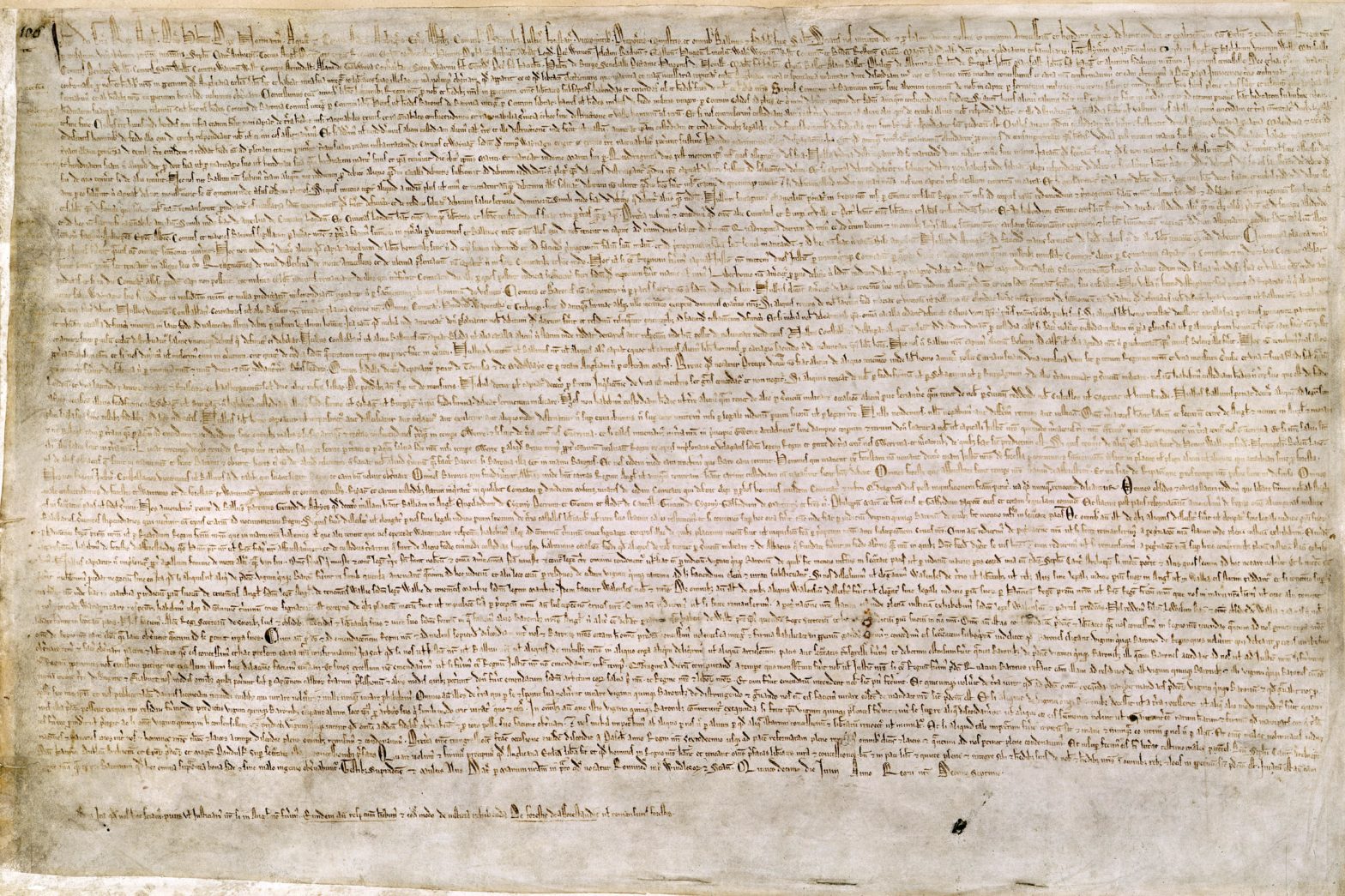The Magna Carta, a seminal document in the history of political and legal thought, was issued in 1215 by King John of England as a result of his conflict with rebellious barons. While the Magna Carta’s primary aim was to resolve this specific conflict, it introduced several groundbreaking philosophical ideas that would later shape the evolution of democracy and the rule of law. This synopsis will explore Magna Carta novelty, the novelty of these philosophical ideas and their implications on the development of modern governance.
- Rule of Law: The Magna Carta was among the first documents to establish the principle that even the ruler is subject to the law. By asserting that the king was not above the legal system, it laid the groundwork for the development of constitutionalism and the separation of powers.
- Limited Government: The Magna Carta imposed limitations on the monarch’s authority, paving the way for the idea of limited government. This concept would later be central to the development of democratic systems, where power is dispersed and checked to prevent tyranny.
- Due Process: The Magna Carta introduced the right to a fair trial and protection against arbitrary punishment, establishing the principle of due process. This cornerstone of modern legal systems emphasizes the importance of fairness and the consistent application of the law.
- Taxation with Representation: The Magna Carta stated that taxes could only be levied with the “common counsel” of the kingdom, a precursor to the modern principle of “no taxation without representation.” This idea, which later fueled the American Revolution, emphasizes the importance of consent from those being taxed.
- Rights of the People: Although primarily focused on protecting the rights of the nobility, the Magna Carta indirectly introduced the concept of individual rights by restraining the power of the king. This idea would later be expanded upon in the development of human rights and civil liberties.
In conclusion, the Magna Carta’s innovative philosophical ideas laid the foundations for modern democratic principles, such as the rule of law, limited government, due process, taxation with representation, and the rights of the people. Its influence on political thought and legal systems has been immense and lasting, shaping the course of history and the evolution of democratic governance.
